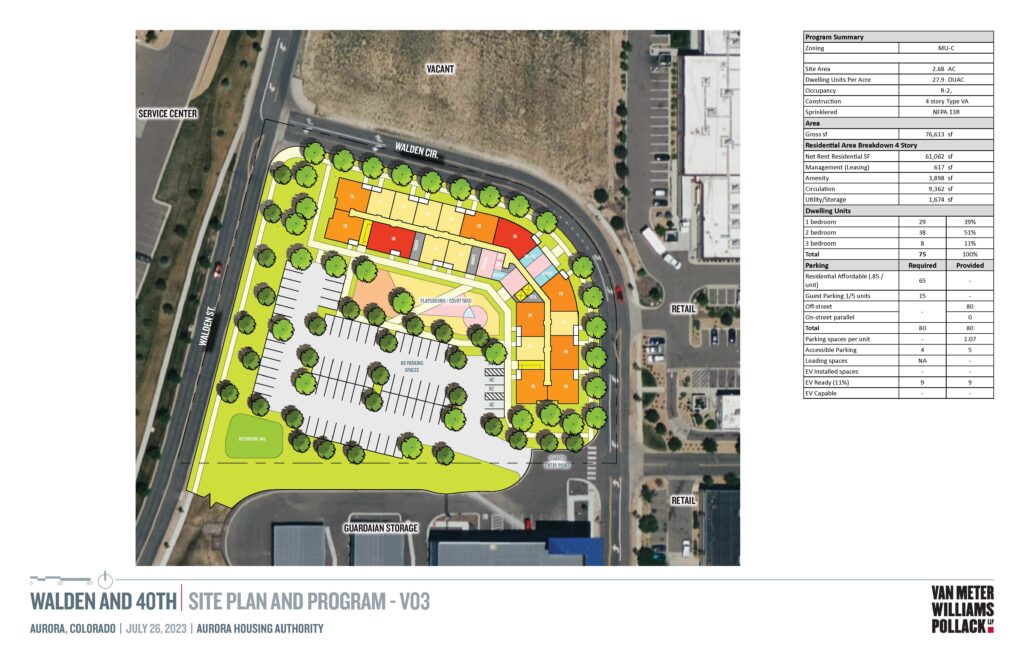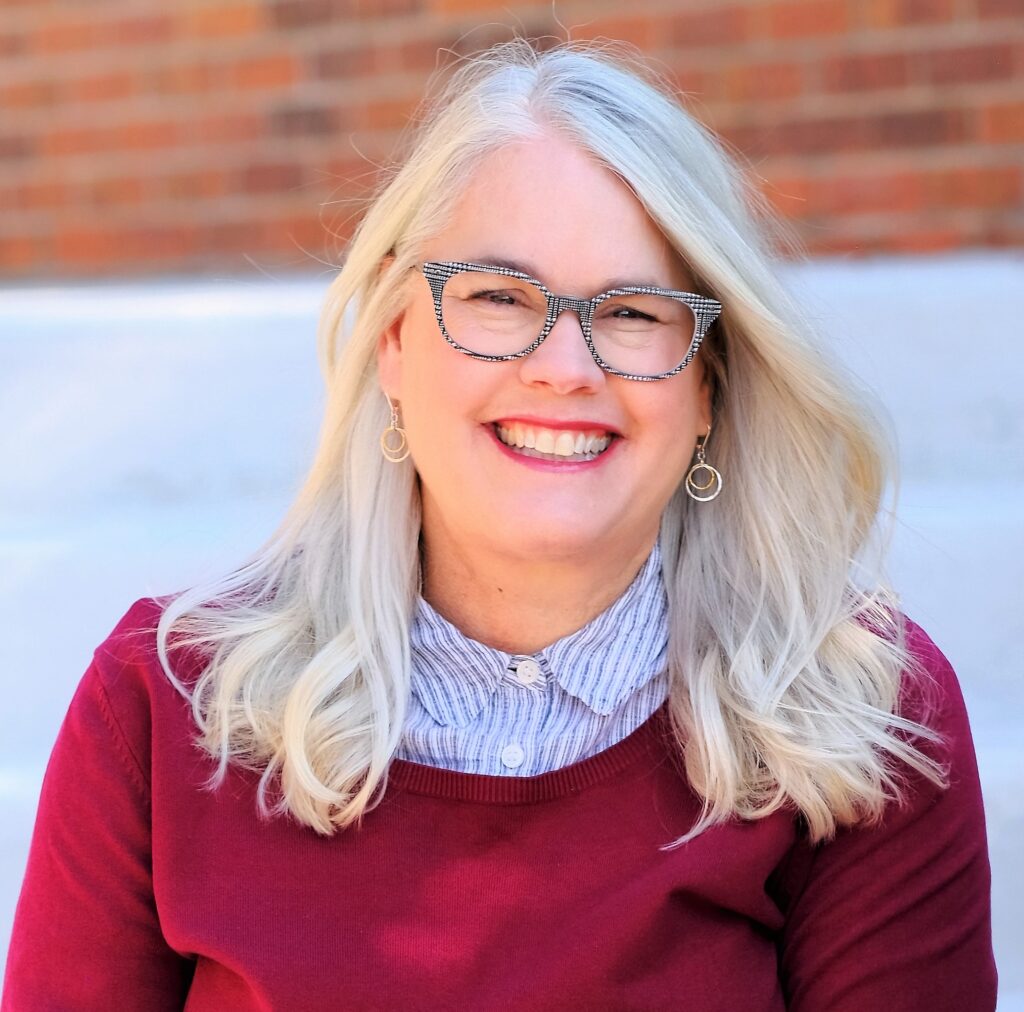New Program Facilitates Land Purchasing for Affordable Housing
Colorado’s Land Banking Program

By Nushin Huq
9 min read
A new land banking program in Colorado aims to help developers purchase land for affordable housing, solving the unique problem of not having tax credits to purchase land, as well as creating access to development in rural areas.
In January, the state Office of Economic Development and International Trade and the Colorado Housing and Finance Authority (CHFA) announced that it awarded 16 applicants $25.34 million of program funds to acquire or preserve land for affordable housing. The applicants represent projects across the state totaling a projected 1,380 units for rental and/or sale. Money for the next round of funding will be available after July.

Proposition 123
In November 2022, Colorado voters passed Proposition 123, which authorized the state to dedicate 0.1 percent of state income tax revenue to fund housing programs to a newly created State Affordable Housing Fund (SAHF). For fiscal year 2022-23, a half-year’s funding of $160 million was allocated to the fund because the law did not go into effect until January 2023. For the first full fiscal year, FY 2023-24, an estimated $318 million will be transferred from the state general fund to the State Affordable Housing Fund, according to a CHFA fact sheet.
Under the new law, money collected in the SAHF is then split 60/40 between two funds – the Affordable Housing Financing Fund and the Affordable Housing Support Fund. The Department of Local Affairs (DOLA) through its Division of Housing (DOH) manages the Affordable Housing Support Fund.
The Land Banking program is financed by the Affordable Housing Financing Fund, managed by the Office of Economic Development and International Trade (OEDIT) in partnership with CHFA, which serves as the contract administrator. In addition to the Land Banking program, the Financing Fund will also be used towards an affordable housing equity program to make equity investments in affordable multifamily rental developments. The third program funded by the Affordable Housing Financing Fund is a concessionary debt program to provide debt financing for low- and middle-income multifamily rental developments and existing affordable housing projects.
Land Banking Program
Land Banking allows communities, local governments, tribal governments and even nonprofits with a history of providing affordable housing to acquire land, whether to develop it immediately or in the future. The statute allows for loans made under the program to be forgiven if the land acquired is properly zoned with an active development plan within five years and development is permitted and funded within ten years.
“A strong economy includes good-paying jobs and housing for every income level,” says Hilary Cooper, OEDIT’s director of Innovative Funding for Housing Programs. “Land banking is an important tool to help Colorado communities take that first step toward increasing the supply of housing. The financial support offered through programs, like Proposition 123, helps offset land prices so that communities can manage project costs and focus on creating affordable housing.”

In 2023, CHFA received 113 Letters of Intent to apply totaling more than $255.8 million in fund requests. In October, CHFA and OEDIT invited 26 applicants to apply, representing $46.9 million in requests. Twenty-one applications for $38.8 million were received, and 16 applicants were awarded $25.34 million. The awards to local governments were in the form of a grant, and the awards to nonprofits were in the form of a forgivable loan.
“We know the demand is there because we see the statistics on the lack of access to affordable housing, but the number of communities that helped identify sites was surprising,” says Steve Johnson, CHFA’s director of community development. “It was encouraging, and then it was disappointing that we couldn’t meet that need. As more funding becomes available each year, we should be able to continue to build more affordable housing with this new program, and that’s exciting.”
One of the recipients was the Housing Authority of the City of Aurora.

They initially requested $5 million and were awarded $1.45 million to purchase land in the Denver International Airport, or DIA, corridor, says Dayna Ashley-Oehm, housing development director at the Aurora Housing Authority. The Authority has purchased the land, and the Prop 123 money will be used as reimbursement.
The Authority has recently opened a 100-unit development called Walden 35, which leased up within three months, says Ashley-Oehm. The land purchased with the land banking funds is near Walden 35. The new development will add about 75 units. The Authority will likely apply for competitive state tax credits combined with four percent federal credits.
“Because it’s in the DIA corridor, we know there’s a great demand for housing to service the growing economy and jobs sector that is connected to that aerotropolis,” says Ashley-Oehm. “Thousands of jobs are being created in this corridor every year – in warehousing, logistics and at the airport.”
There’s not enough affordable housing in the area, and many jobs pay a wage around 50 to 60 percent of the area median income, Ashley-Oehm says, which dovetails nicely with requirements of the Low Income Housing Tax Credit program.
“This provides an opportunity for us to meet the housing needs of the workers who are vital to the growth in this area.”
OEDIT and CHFA
The Land Banking program is a collaboration with the state and OEDIT. CHFA and OEDIT held numerous stakeholder sessions to map out how to meet the needs of the state and design the program to fit the legislative intent and statute.
“We are designing in partnership the program guidelines and applications, and collecting feedback from stakeholder sessions,” Johnson says. “CHFA’s role will be the creation of program documents, applications and loan documents. It will also collect those applications, do the underwriting and run the approval process with input from the governor’s office. The closings and servicing are done by CHFA. So CHFA provides the traditional loan process,” Johnson says.
Guidelines
To be eligible, affordable housing projects seeking support must be in a jurisdiction that has opted-in through the completion of a Proposition 123 Local
Government Affordable Housing Commitment with the Colorado Department of Local Affairs − Division of Housing. Local governments opting in are committing to achieve a nine percent increase in their affordable housing inventory over three years.
The funding is overseen by the Department of Local Affairs and the state OEDIT and may be granted or loaned to the following types of organizations: nonprofits; community land trusts; private entities; and local governments.
Because the program was brand new, for the first round of awards, CHFA asked interested parties to submit a letter of intent.
“We wanted to find out if the available funding was going to be sufficient for demand or if we were going to be oversubscribed?” says Johnson. “We got 113 responses back and we knew we were going to be well oversubscribed. The letters of intent confirmed the need for a competitive process of awarding the funding.”
OEDIT and CHFA evaluated proposals based on their readiness to proceed, development plan status, financial feasibility, geographic distribution, dollar amount of request and total number of units proposed. Projects that achieve high-density housing, mixed-income, and are consistent with the goal of environmental sustainability were also prioritized.
Land banking, as a general concept, is preserving land for the future development of affordable housing. In this initial round of awards, because CHFA wanted to make sure these deals got done, they also included a new threshold of how close projects were to being closed or ready to be closed, and how soon development could take place, says Ashley-Oehm.
“Even though it was land banking, there’s also so much need for affordable housing right now there was a focus on who could use this grant award and to make things happen quickly,” says Ashley-Oehm.
Shovel-ready is a desire to be able to build units as quickly as possible to meet the critical housing shortage in Colorado, Johnson says.
“The desire was eventually to have this look like a traditional Land Banking program, which is a site that can be acquired and preserved today, but may not be developed for years,” Johnson says. “Any changes to the threshold requirements for the next round, such as shovel-ready development, will be communicated as part of the rollout for the next tranche of funding.”
Starting with the second round of funding for the Proposition 123 Land Banking program, support will also be considered for projects with longer development timelines.
Because the funding is based on the state’s fiscal year, money for the next round will not be available until after July. The goal is to start the process before July because money isn’t necessary to start the application process, Johnson says.
“We want to be responsive to the market and get those applications moving as quickly as possible,” Johnson says. “So, I am hopeful that we will be able to start that application before July. We hope to communicate the dates for round two Land Banking applications within the next 30 days.
Going forward, Johnson says their goal is to make the Land Banking application an efficient process, and place as low a burden on the applicants as possible. For a local government, especially in smaller communities, it’s challenging to fill out an application and go through the process when they may not have the staff.
“I felt like we achieved that this year,” says Johnson. “What was frustrating is so many applications didn’t receive an award, and the program was so oversubscribed. That speaks to the demand, and the exciting part is there are so many opportunities. So, with double the funding, I anticipate strong demand and the need to utilize a similar process for the next round.”
While they anticipate that some of these Land Banking awards and future applicants will be using tax credits as a final form of financing, OEDIT and CHFA hope that the land bank will create access to development in areas throughout the state, including for smaller developments or for sale construction where tax credits may not be the best or an eligible financing option.
Geographic distribution of funds was included in the list of selection criteria for awardees during the first round of awards.
“We’re able to take the land out of the equation or at least greatly reduce the cost of the land,” says Johnson. “Particularly for smaller or rural developments, we think that could be impactful. Our goal is to provide this funding across the state and not just in metro areas, but to reach out into the smaller communities.”
